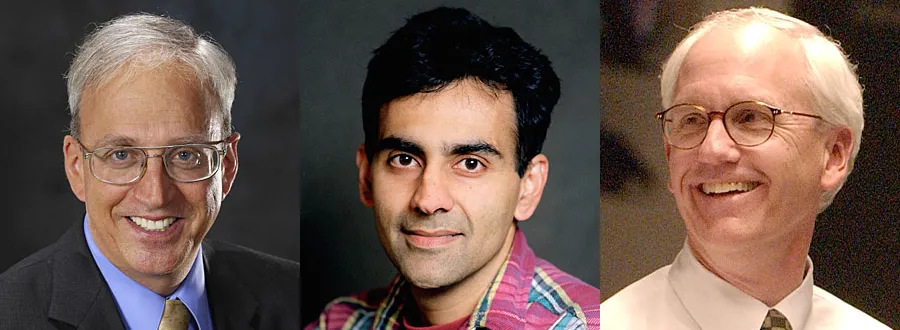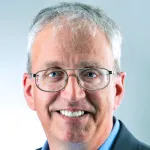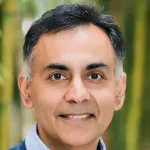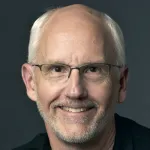
Stanford Report - February 10th, 2009 - by Krista Conger
Four Stanford professors and one associate professor have been elected to the National Academy of Engineering (NAE). William J. Dally, Chaitan Khosla, Mendel Rosenblum, Lawrence M. Wein and Paul G. Yock were among the 65 new members announced last week. Their election brings the number of Stanford members of the academy to 88, plus one foreign associate.
The NAE is an independent, nonprofit organization. Members are elected by their peers for seminal contributions to engineering. The academy provides leadership and guidance to government on the application of engineering resources to social, economic and security problems. The total U.S. membership is now 2,246. In addition, there are 197 foreign associates.
Following are the names and brief biographies of Stanford's newly elected members:
WILLIAM DALLY, the Willard R. and Inez Kerr Bell Professor in the School of Engineering and chair of the Computer Science Department, was cited "for contributions to the design of high-performance interconnect networks and parallel computer architectures." He was recently named chief scientist at NVIDIA Corp., the visual computing technologies company. Dally earned a bachelor's degree in electrical engineering from Virginia Polytechnic Institute, a master's degree in electrical engineering from Stanford and a PhD in computer science from the California Institute of Technology. He was a professor at the Massachusetts Institute of Technology for 11 years before coming to Stanford in 1997. He is a fellow of the American Academy of Arts and Sciences, the Institute of Electrical and Electronics Engineers and a fellow of the Association for Computing Machinery.
CHAITAN KHOSLA, a professor of chemistry and of chemical engineering, was elected "for engineering molecular assembly lines, developing metabolic engineering technologies, and advancing biopharmaceutical discovery." Over the past two decades, Khosla, the Wells H. Rauser and Harold M. Petiprin Professor, has studied particular kinds of enzymes and has exploited their properties to engineer novel antibiotics. More recently, he has sought to develop therapies for celiac sprue, a widespread but often overlooked autoimmune disease in which afflicted people have strongly adverse reactions to many grains. He has co-authored more than 230 publications and 50 U.S. patents. He is a fellow of the American Association for the Advancement of Science and a member of the American Academy for Arts and Science. Khosla became chair of the Chemical Engineering Department last year, although he is currently on sabbatical. He earned his PhD in 1990 at Caltech and joined Stanford in 1992.
MENDEL ROSENBLUM, an associate professor of computer science and of electrical engineering, was cited for "fundamental contributions to computer operating systems and virtual machines." Virtual machine software enables multiple operating systems to run simultaneously on a computer. For example, a computer could run both MacOS and Windows. Together with his students, he has developed the Hive operating system, the SimOS machine simulator and the Disco virtual machine monitor. In addition, Rosenblum's research interests have included disk storage management and computer security and mobility. He also directs Stanford's Computer Systems Laboratory. A fellow of the Association for Computing Machinery, he is a recipient of the ACM's 2002 Mark Weiser Award for creativity and innovation in operating systems research. In 1998, Rosenblum co-founded VMware Inc., where he helped to create widely used virtualization technology that is making computing environments more efficient. He was VMware's chief scientist for the company's first 10-and-a-half years. He earned a PhD in computer science from the University of California-Berkeley in 1992.
LAWRENCE M. WEIN, the Paul E. Holden Professor in the Graduate School of Business, was elected "for model-based research to characterize and improve homeland security operations." An affiliated faculty member at the Center for International Security and Cooperation, Wein has been analyzing a variety of homeland security problems since 2001. He has written about emergency responses to smallpox and anthrax attacks and an analysis of a possible bioterror attack on the milk supply. After earning a PhD in operations research from Stanford in 1988, Wein spent 14 years at the Sloan School of Management at MIT, where he was the DEC Leaders for Manufacturing Professor of Management Science. His research interests include mathematical models in operations management, medicine and biology. His awards include the 1993 Erlang Prize for the outstanding applied probabilist under 35 years of age and the 2002 Koopman Prize for the best paper in military operations research.
PAUL YOCK, the Martha Meier Weiland Professor in the School of Medicine and founding co-chair of the Department of Bioengineering, was cited for the "invention of rapid-exchange catheters, intravascular ultrasound imaging, and the smart needle, and for innovations in bioengineering education." He is director of the Program in Biodesign. His research interests include development and testing of catheter-based delivery systems for cardiac cell transplantation and new catheter and molecular imaging techniques for cardiology. He is internationally known for his work in inventing, developing and testing new devices. Yock began his faculty career as an interventional cardiologist at the University of California-San Francisco and then moved to Stanford in 1994. He served as acting chief of the Division of Cardiovascular Medicine from 1997 to 1998. After undergraduate and graduate study at Amherst College and Oxford, respectively, Yock earned his medical degree from Harvard Medical School followed by internship and residency training at the University of California-San Francisco, and a fellowship in cardiology at Stanford.



